Spanish football has stood out throughout history for its talented players and great achievements. Since the beginning of the sport in the country, many figures have left an indelible mark on the fans. This article presents a tour of the best footballers in Spain, analyzing their careers and contributions to both clubs and the national team. His legacy has enriched football and continues to inspire new generations.
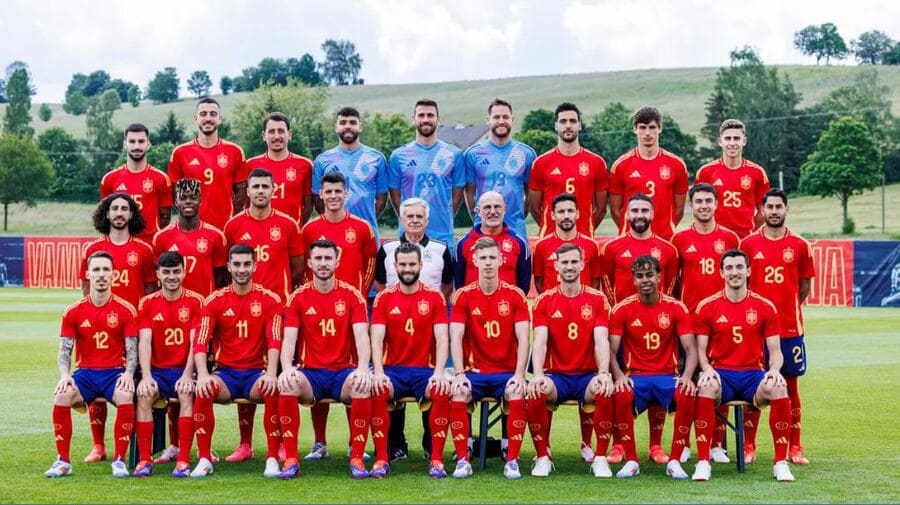
Table of contents
The Historical Context of Spanish Football
Football in Spain has a rich history full of decisive moments that have defined the course of this sport. From its beginnings to consolidating itself as one of the most beloved in the country, the historical context of Spanish football reflects its evolution and the influence of various social and cultural circumstances.
First Steps of Football in Spain
Football arrived in Spain at the end of the 19th century, driven by British influence. The first games were played on improvised fields, and soon this sport began to become popular in different cities. In 1909, the Spanish Football Federation was founded, marking a milestone in its organization.
- The first clubs, such as FC Barcelona and Real Madrid, emerged during this period.
- The first competitions, such as the Copa del Rey, began to be held, promoting rivalry and interest in the game.
The Civil War and its Impact on Football
The Spanish Civil War (1936-1939) had a devastating impact on all aspects of society, including sport. During this period, many competitions were suspended and some players left the country. However, football also served as a means of escape and unity for the population.
- After the war, many clubs were left in ruins, but soon the fans re-emerged with more fervor.
- The reconstruction of the national league and the return of some players marked the beginning of a new era in Spanish football.
The Professionalization of the Spanish League
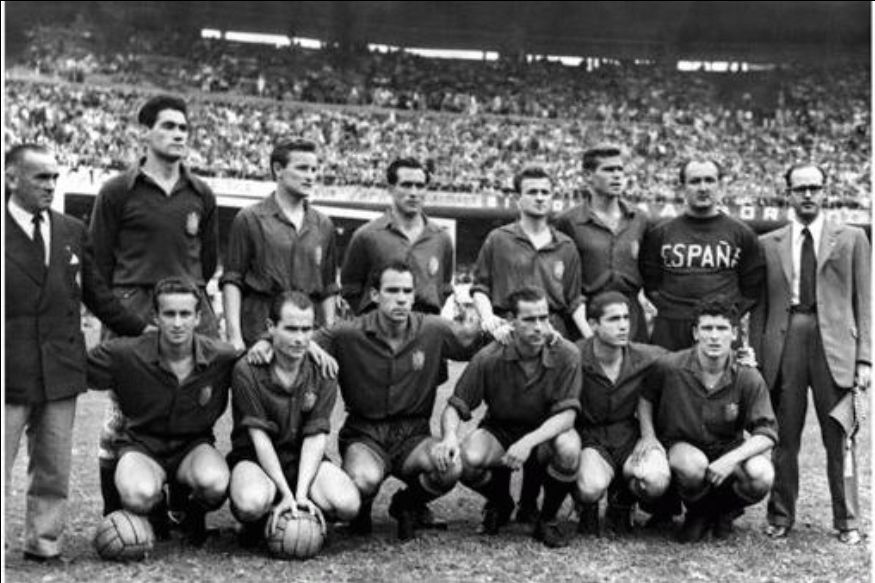
In the late 1950s, Spanish football began to experience significant professionalization. This change brought about the establishment of a more organized and competitive league. Clubs were structured more effectively, allowing both national and international talent to be attracted.
- More defined rules were created for the competition, which contributed to its development.
- Teams like Real Madrid stood out on the European scene, eager to leave their mark on sporting history.
The First Legendary Figures Emerge
The period of professionalization encouraged the emergence of extraordinary footballers , who became symbols of Spanish sport. Among these pioneers, the figure of Alfredo Di Stéfano stands out, who, although born in Argentina, left an indelible mark on Spanish football culture.
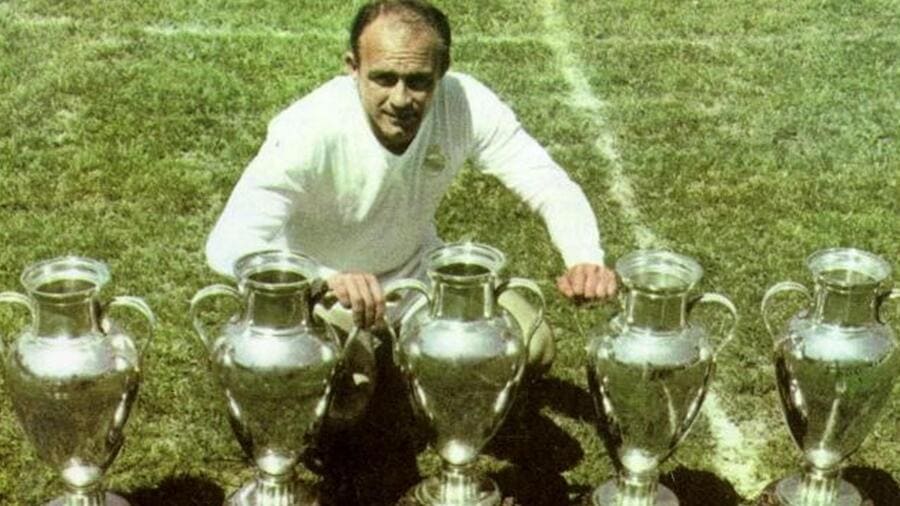
- These footballers not only raised the level of the game but also helped popularize the sport in the country.
- Their legacy has influenced several generations of players, who see them as a role model.
Alfredo Di Stéfano and his Legacy
Alfredo Di Stéfano is one of the most emblematic footballers in history, whose impact on Spanish football transcends generations. His influence on Real Madrid and world football has left an indelible mark, making him a legendary figure.
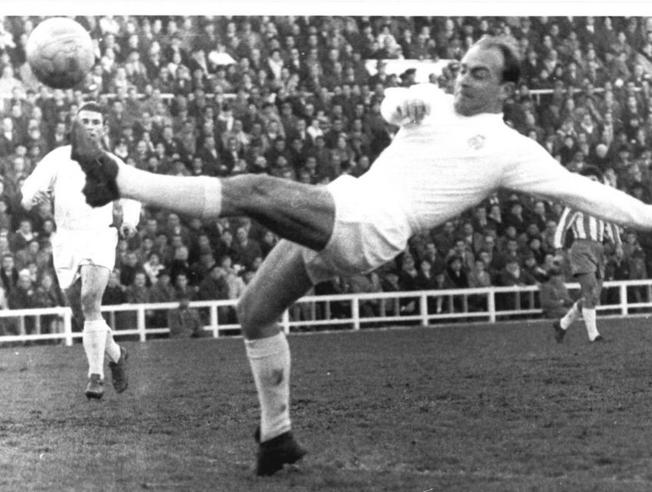
Career at Real Madrid
The arrival of Alfredo Di Stéfano to Real Madrid in 1953 marked a milestone in the club’s history. His versatility as a forward and midfielder, along with his exceptional game vision, made him an invaluable asset to the team. Throughout his career at Madrid, Di Stéfano accumulated numerous titles and recognitions that cemented his status as one of the greats.
During his stay, the team experienced significant growth in performance, thanks to his ability to influence matches with both goals and assists. Di Stéfano was instrumental in building a powerful team that would dominate European football for years.
Impact on Consecutive European Cups
Di Stéfano was a key player in the achievement of the five European Cups that Real Madrid won consecutively between 1956 and 1960. His performance in these competitions was decisive, as he provided the experience and leadership that the team needed. The following are some of his most significant contributions:
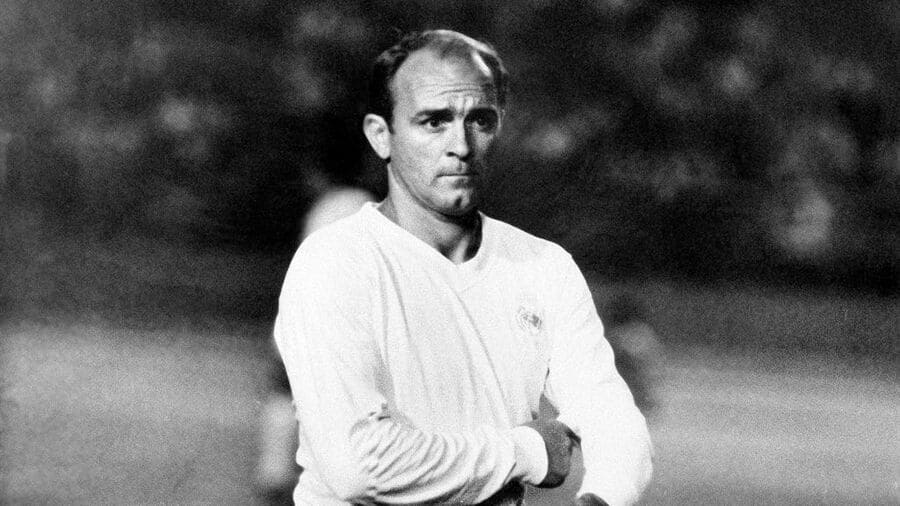
- 1956 : Scored two goals in the final against Stade de Reims, helping lead Madrid to its first victory in this competition.
- 1957 : His ability to create scoring chances and finish in key moments was crucial to winning the second consecutive title.
- 1958 : Although Madrid did not win the title, Di Stéfano maintained an outstanding performance, scoring important goals during the tournament.
- 1959 : With his leadership again present, Madrid secured another trophy, highlighting the importance of Di Stéfano’s figure in the team.
- 1960 : In the famous final against Eintracht Frankfurt, Di Stéfano scored two goals, being vital in the 7-3 victory.
Revolutionizing World Football
Alfredo Di Stéfano not only left his mark on Real Madrid, but also revolutionized the concept of modern football. His style of play, characterized by his tireless work on the field and his versatility, has served as an inspiration for future players. With his ability to adapt to different positions on the pitch, he set a new standard for elite footballers.
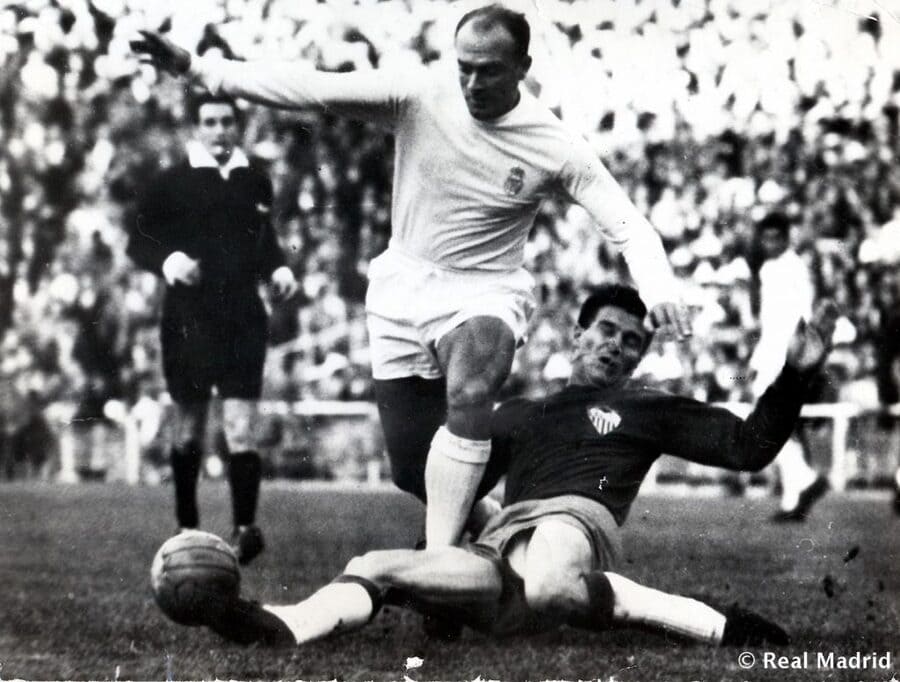
His influence spread beyond the borders of Spain, as teams around the world began to recognize the importance of a well-rounded player who could perform in multiple roles. Di Stéfano was a pioneer in this regard, and his legacy lives on in the training of a new generation of footballers who seek to emulate his impact on the game.
Thus, Alfredo Di Stéfano became a symbol of success and professionalism in sport, remembered not only as one of the best footballers of his time, but also as a true reference in the history of world football.
Golden Era: The Spanish National Team and Tiki-Taka
The Golden Era of the Spanish national team is characterized by its distinctive style of play known as “tiki-taka”. This approach revolutionized football, taking Spain to the pinnacle of international success in football.
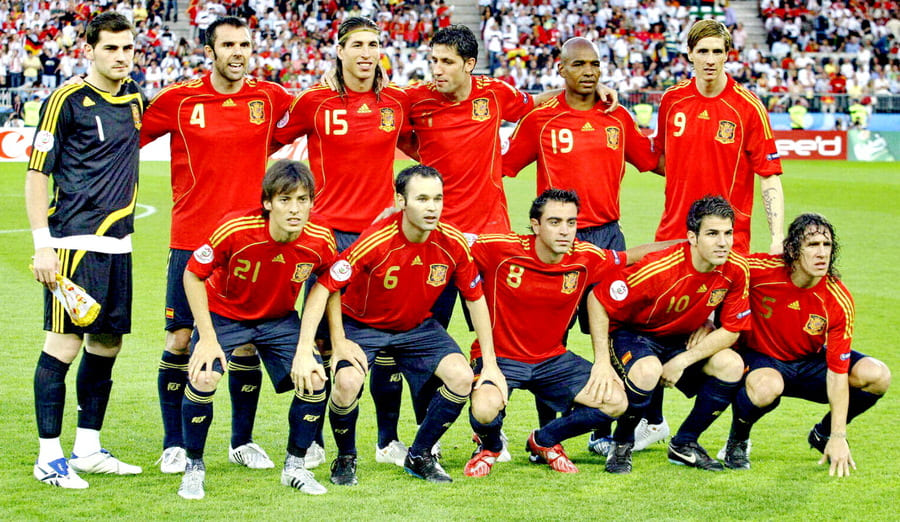
Euro 2008: Beginning of Dominion
Euro 2008 marked the rebirth of Spanish football, with a style of play that combined possession of the ball with precise touch and constant movement. Under the direction of coach Luis Aragonés, Spain played an attractive and effective game.
The road to the title began with the group stage, where Spain showed its skill and quality. It was in the quarterfinals where they faced Italy, a match that culminated in a penalty shootout. The victory was a psychological milestone that boosted the team’s morale.
In the semifinals, Spain decisively beat Russia, demonstrating its offensive capacity. Finally, in the final, they beat Germany 1-0, with a goal from Fernando Torres, becoming champions and starting a new era of domination in football.
2010 World Cup: The Consecration
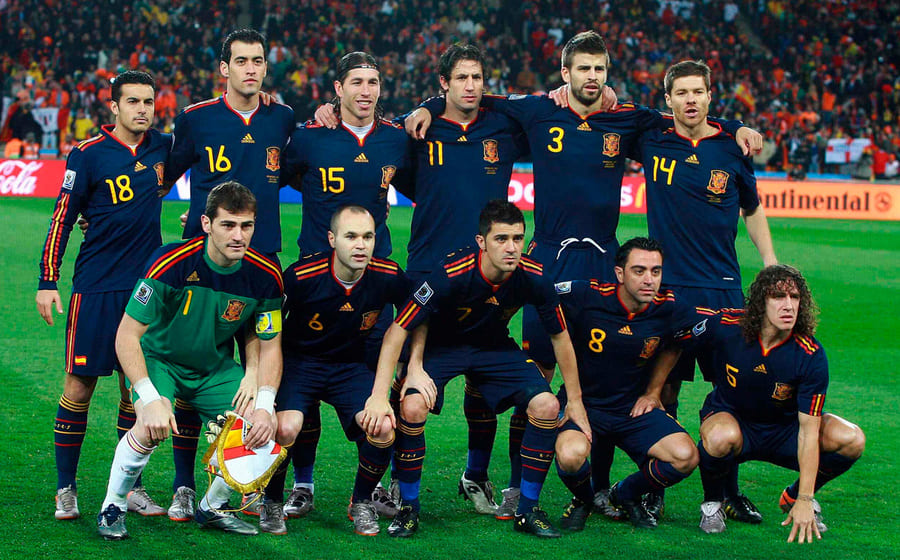
The 2010 World Cup in South Africa was the pinnacle of success for the Spanish team. With a team led by figures such as Iker Casillas, Xavi Hernández, and Andrés Iniesta, Spain showed its playing philosophy through tiki-taka, combining short passes and ball control.
Overcoming a hesitant start, where they lost to Switzerland, they managed to establish themselves in the following matches, beating Honduras and Chile. In the round of 16, they faced Portugal, leaving a show of authority with a 1-0 under the command of excellent team play.
The confrontation with Germany in the semifinals was a memorable match. The only goal of the match was the work of Carles Puyol, who rose to finish off a corner. In the final against the Netherlands, a decisive goal by Andrés Iniesta in extra time secured the victory and the first world title.
Euro 2012: Confirmation of Success
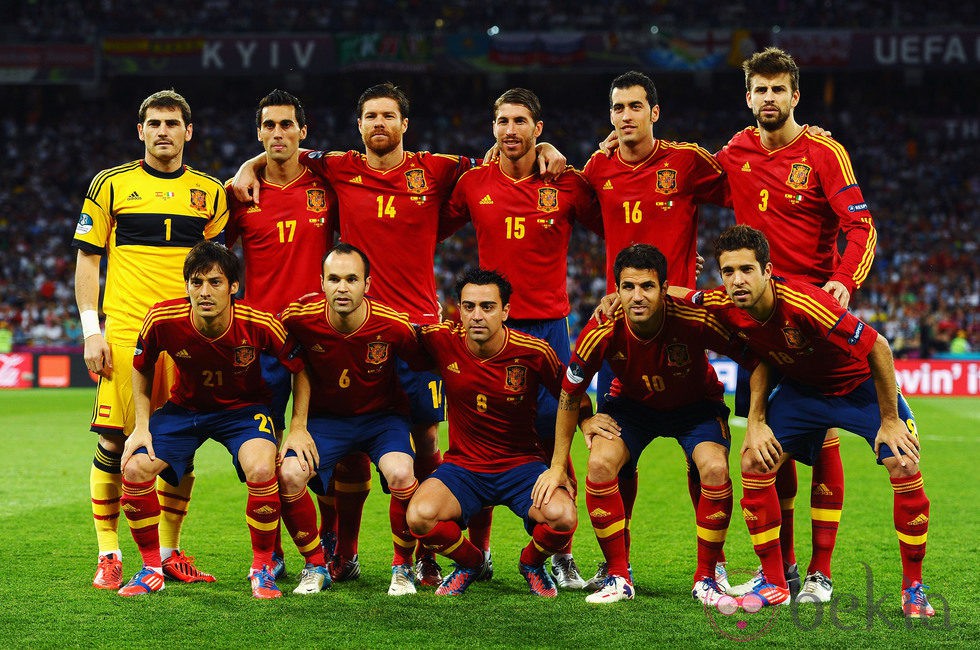
Euro 2012 consolidated the dominance of the Spanish team in European football. With a squad full of talent and experience, Spain came into the tournament as defending champions, ready to show that their previous success had not been circumstantial.
In the group stage, Spain presented a possession game that disarmed its rivals, comfortably advancing to the knockout phase. In the semi-finals, they faced Portugal, again in a penalty shootout, after a goalless draw in regulation time.
The grand final was played against Italy, and was one of the most impressive matches in the history of the European Championship finals. Spain won 4-0, showing its dominance with a dazzling game, becoming the first team to win the European Championship consecutively.
Keys to Tiki-Taka
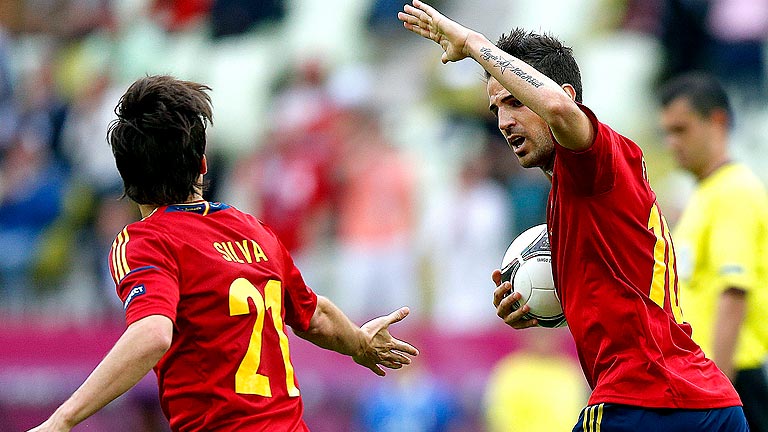
Tiki -taka has been more than just a style of play; It has become a symbol of Spanish football. Its success lies in several key elements:
- Ball Possession: The strategy is based on maintaining control of the ball, limiting the opponent’s opportunities.
- Short Passes and Precision: The team relies on a network of short passes, which allows rapid circulation of the ball.
- Constant Movement: Players constantly move to create space and make passes flow naturally.
- Teamwork: Group cohesion is essential, where each player understands their role in the system.
- Defensive Commitment: Ball recovery is as important as possession, working as a team to avoid counterattacks.
Tiki-taka has not only redefined the playing style of the Spanish team, but has also left an indelible mark on world football, influencing teams and national teams around the planet.
Great Figures at Real Madrid
Real Madrid has been, throughout its history, a bastion of football talent and great players who have left an indelible mark both on the club and in the hearts of its fans.
Iker Casillas: The Saint of the Goalkeeper
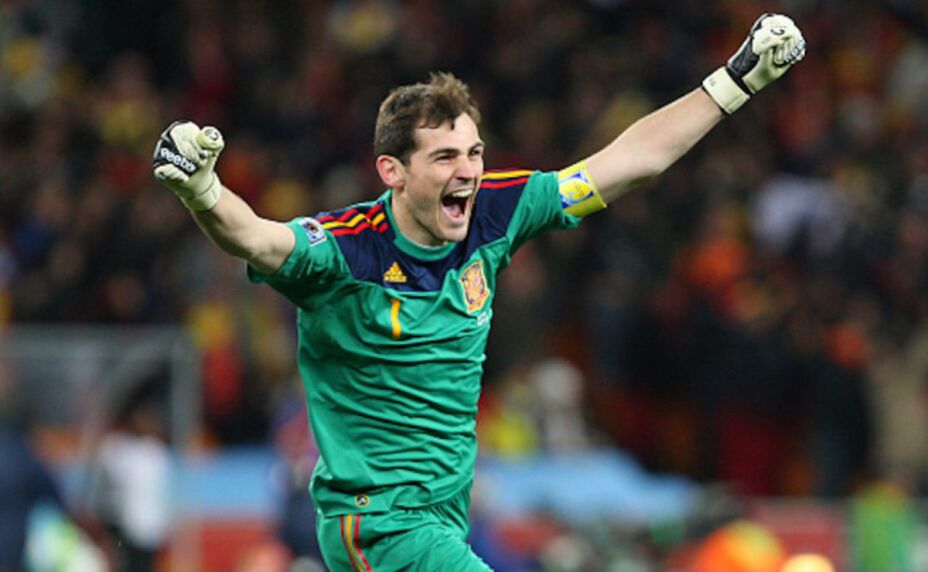
Iker Casillas is without a doubt one of the most iconic goalkeepers in the history of football. Known as “El Santo”, his agility, reflexes and leadership under the three sticks of Real Madrid made him a sporting legend.
Memorable Interventions
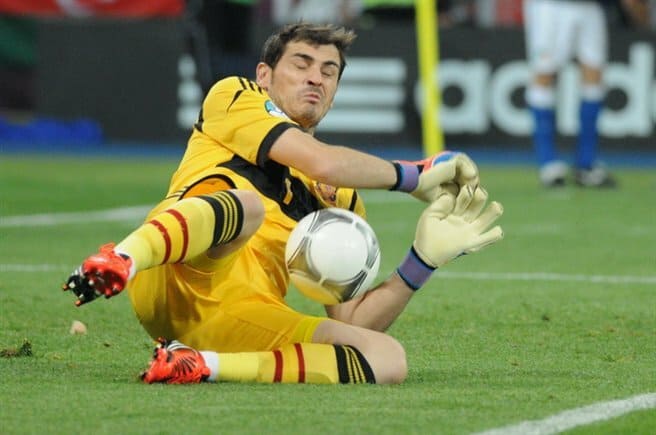
Iker’s interventions at key moments have become part of the club’s folklore. His save in the 2002 UEFA Champions League final against a powerful Bayer Leverkusen is remembered by all fans. Likewise, his performance in Euro 2008 was fundamental for the Spanish team to win the tournament, highlighting his bravery and skill.
Honors with Real Madrid
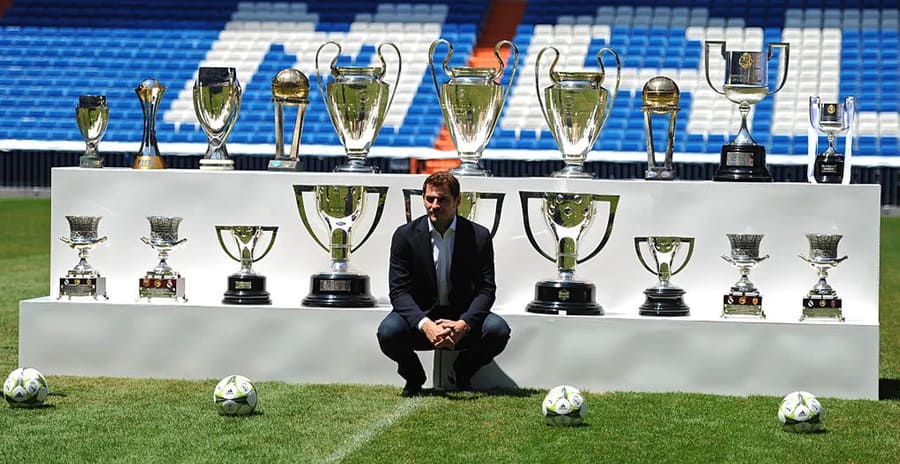
During his long career at Real Madrid, Iker Casillas amassed an impressive collection of titles, including:
- UEFA Champions Leagues
- Spanish leagues
- King’s Cups
- Spanish Super Cups
His legacy is reflected not only in the trophies, but in the feeling of security he gave his team in each game.
Raúl González: Eternal Captain
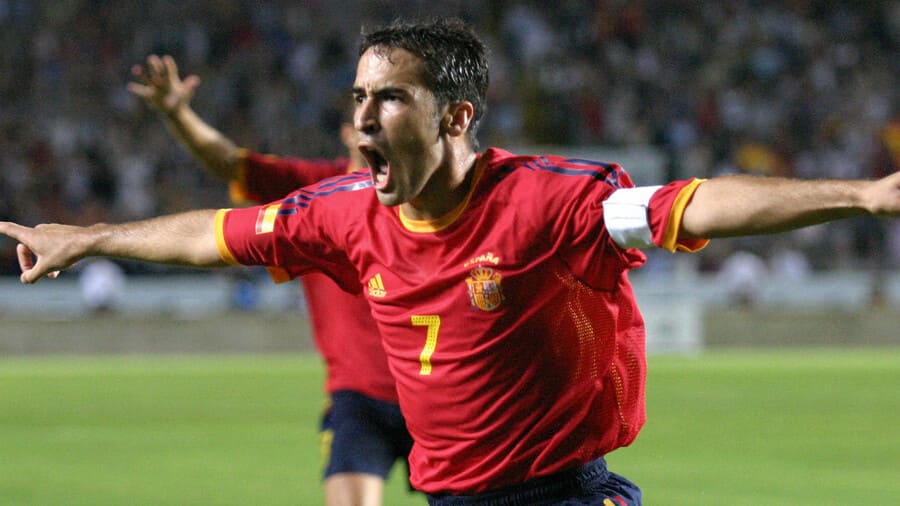
Raúl González, a symbol of Real Madrid, is widely recognized for his scoring ability and leadership on the field. As one of the top scorers in the club’s history, his passion and dedication were evident in every game.
Goals and Titles in the White Club
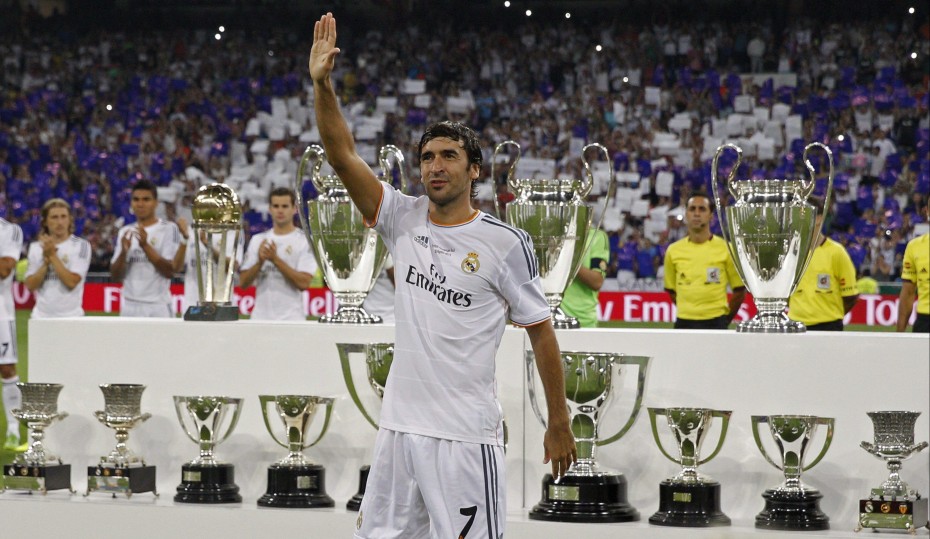
Raúl left an indelible mark on Real Madrid with more than 300 goals in official competitions. His record includes:
- Spanish leagues
- UEFA Champions Leagues
- Spanish Super Cups
- King’s Cups
His ability to turn up in decisive moments solidified his status as a true icon of the club.
Legacy of a Historical Scorer
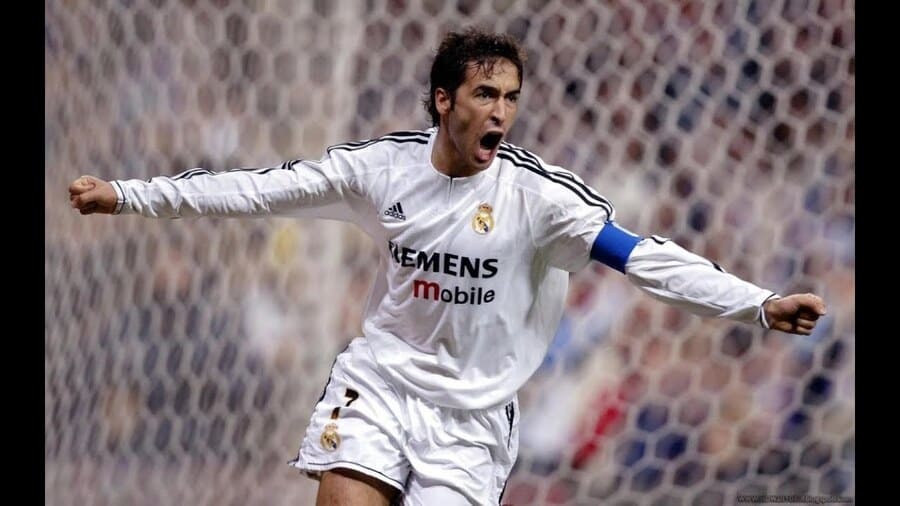
Raúl retired from professional football leaving a legacy that inspires new generations. His character and work ethic set a standard that many seek to emulate. The figure of Raúl remains a reference both in Real Madrid and in the culture of Spanish football .
Sergio Ramos: Leadership and Versatility
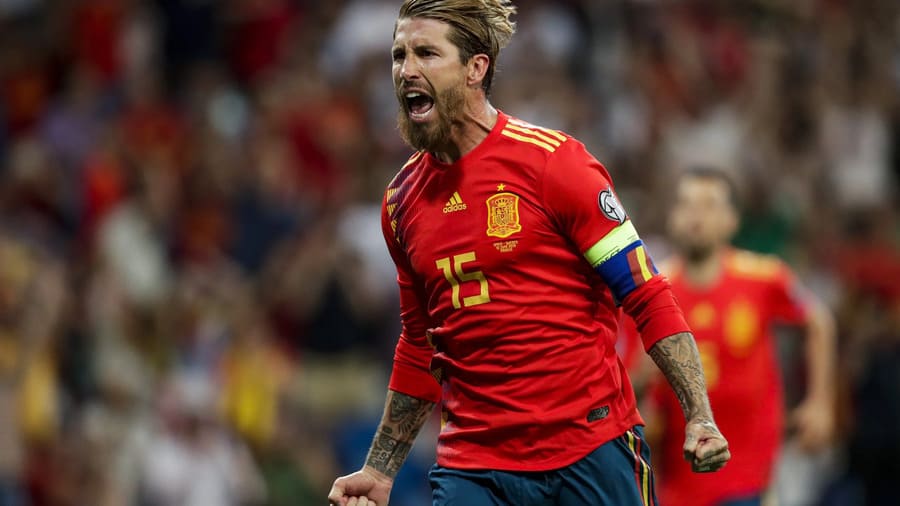
Sergio Ramos is another Real Madrid pillar, renowned for his defensive prowess and his ability to score in crucial moments. With his combative and charismatic character, he has earned the respect of fans and rivals alike.
Decisive Goals
Ramos has not only excelled as a defender, but he has also been a consistent goalscorer. His goals in finals, like the famous equalizer in the 2014 Champions League final against Atlético de Madrid, are memorable. His ability to score headers and free kicks allowed him to score more than 100 goals during his time at the club.
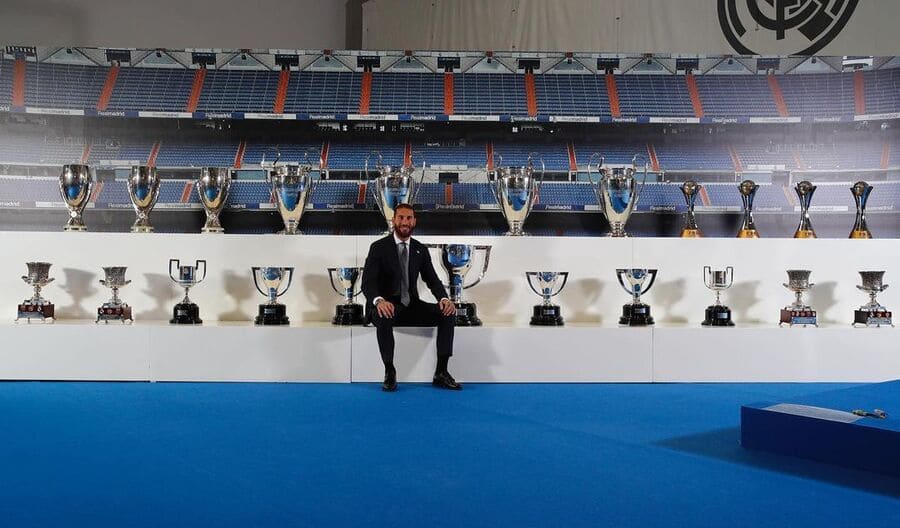
Key Moments in your Career
Throughout his career, Ramos has experienced unforgettable moments with Real Madrid, including:
- The conquest of 4 UEFA Champions Leagues
- Spanish leagues
- King’s Cups
His influence in the locker room and leadership on the field consolidate him as one of the greatest defenders in the club’s history.
FC Barcelona emblems
FC Barcelona has been home to iconic players who have left an indelible mark on the history of football. Through their unique playing style and tournament success, these figures have highlighted the club’s identity and legacy.
Xavi Hernández: Architect of the Game
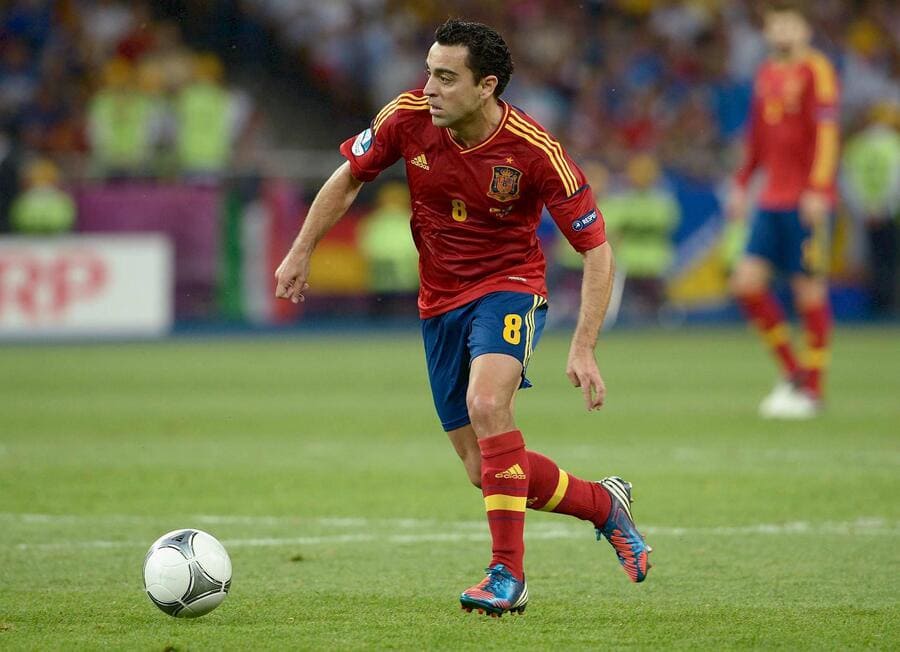
Xavi Hernández , known for his exceptional vision and distribution ability, is considered one of the greatest midfielders in history. His influence on the game of FC Barcelona and the Spanish team has been fundamental to the success of both.
Mastery in the Center of the Field
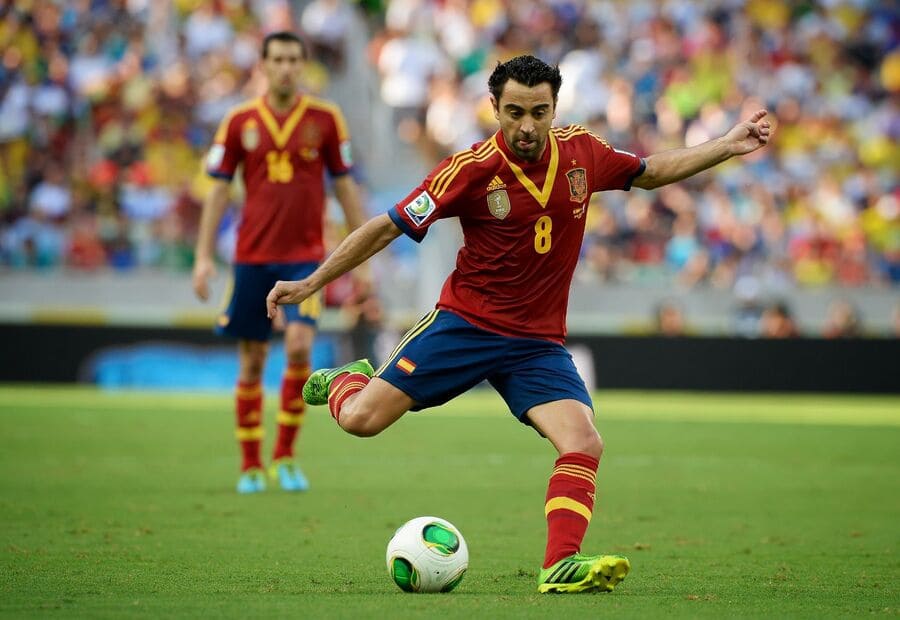
Xavi’s way of interpreting the game revolutionized the midfield. His ability to read the game and anticipate the plays allowed him to dominate the games. With an impeccable first touch, he made pinpoint passes that dismantled rival defenses. His ability to maintain possession of the ball and control the pace of the game was amazing.
Victories and Recognitions
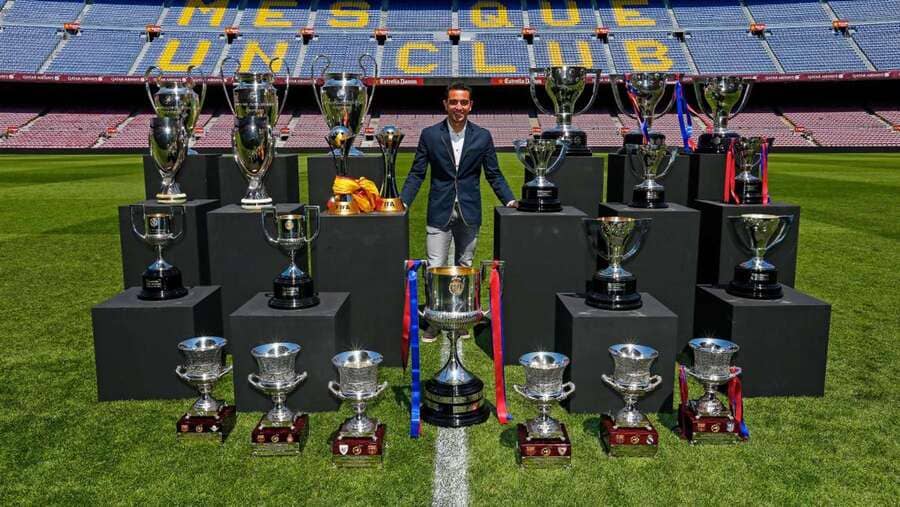
Throughout his career, Xavi accumulated an impressive number of titles. With Barcelona, he won multiple Champions Leagues and Spanish Leagues. He was also a key player in the Spanish team, contributing to victories in European Championships and World Cups. His legacy extends beyond trophies, being a role model for future generations.
Andrés Iniesta: The Magisterium of Magic
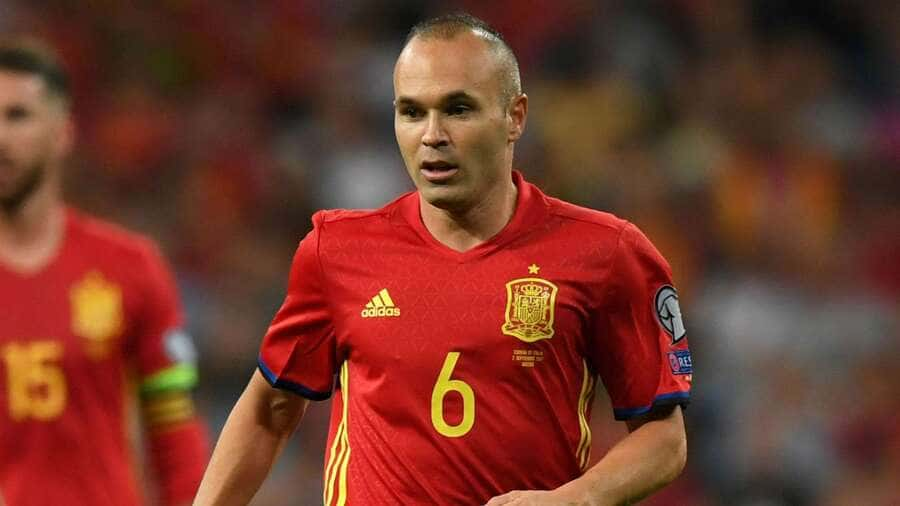
Andrés Iniesta is another of the great emblems of FC Barcelona. With his unmatched technique and ability to resolve complex situations, he became one of the most important midfielders of his time. Iniesta’s creativity and vision of the game added a magical dimension to football.
Tactical Innovations
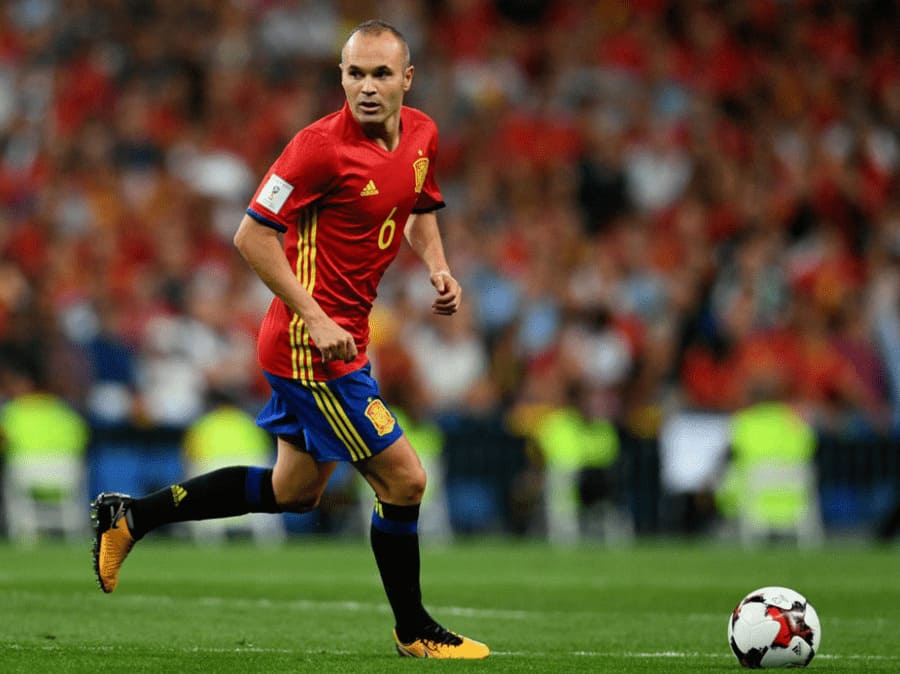
Iniesta revolutionized the style of play through his dribbling and ability to break down defensive lines. His tactical approach allowed him to excel in small spaces, creating scoring opportunities for his teammates. His connection with Xavi in the center of the field was key to the success of “tiki-taka”.
Unforgettable Goal in the 2010 World Cup
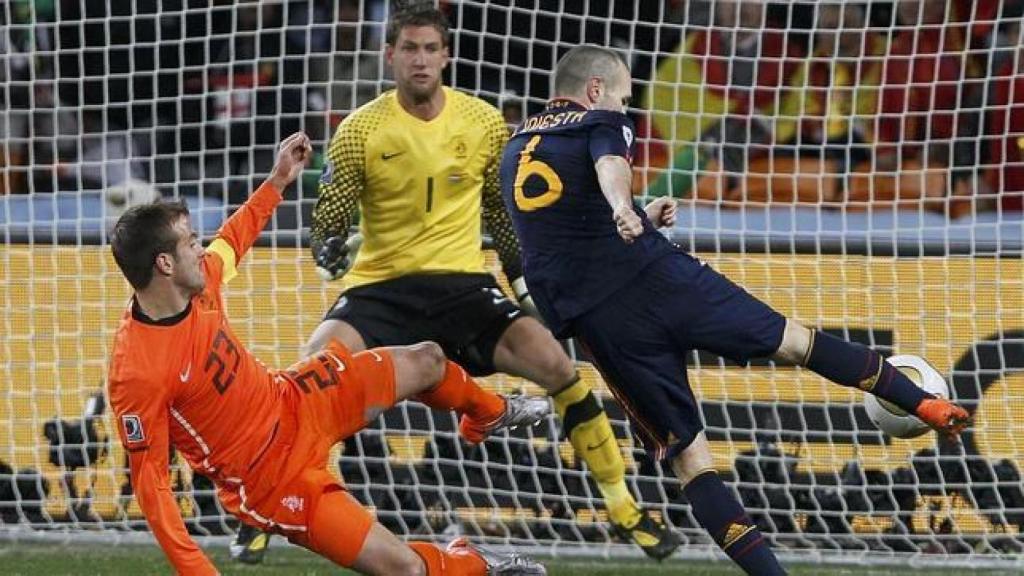
One of the most memorable moments of Iniesta’s career was his goal in the 2010 World Cup final. This goal, which brought Spain to the top of world football, not only consolidated his name in history, but also highlights his ability to appear in decisive moments.
Carles Puyol: Strength and Determination
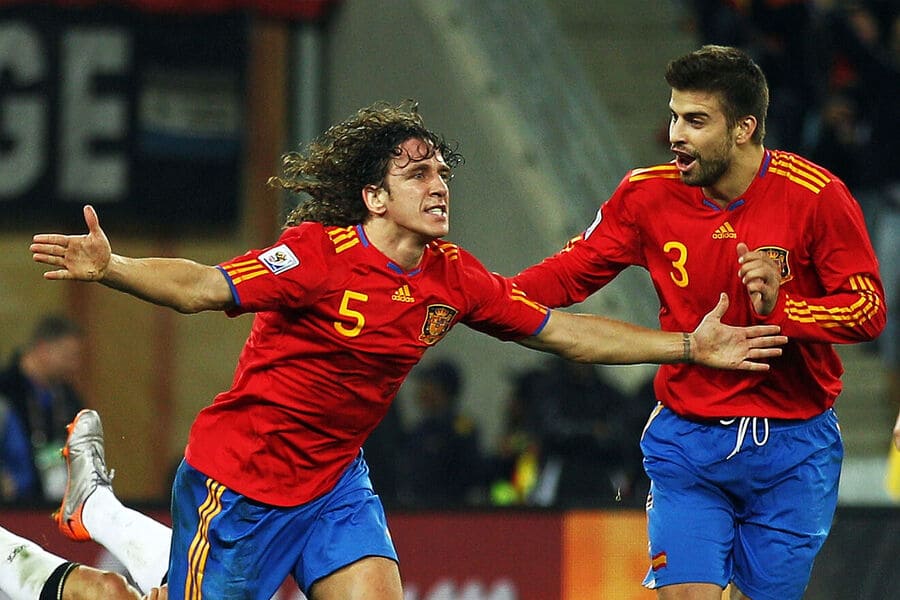
Carles Puyol, the famous captain of FC Barcelona, is synonymous with leadership and commitment. As a central defender, he showed unmatched determination and dedication, becoming a fundamental pillar of the team for many years.
Relentless Defense
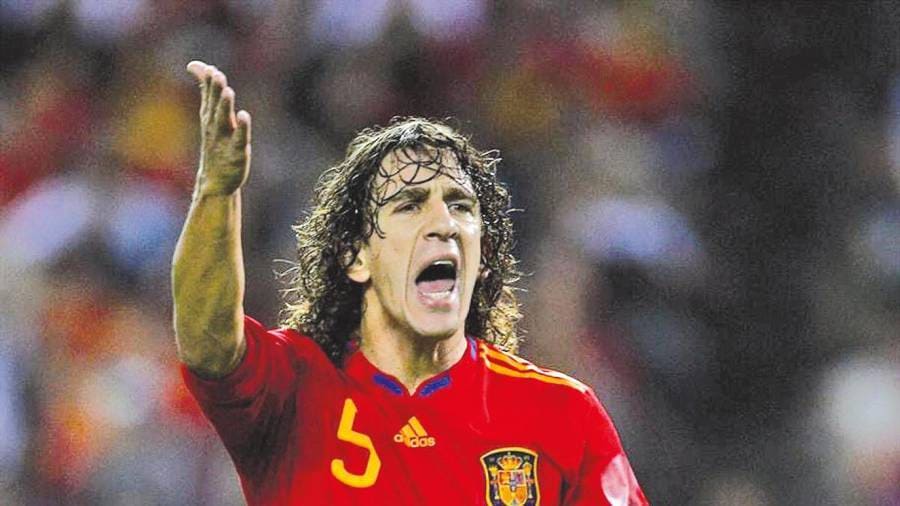
Puyol’s defensive solidity was incomparable. His ability to anticipate plays and his bravery in fighting for each ball made him a true wall in the FC Barcelona defense. He was a born leader, transmitting confidence and determination to his teammates in every game.
Titles and Personal Achievements
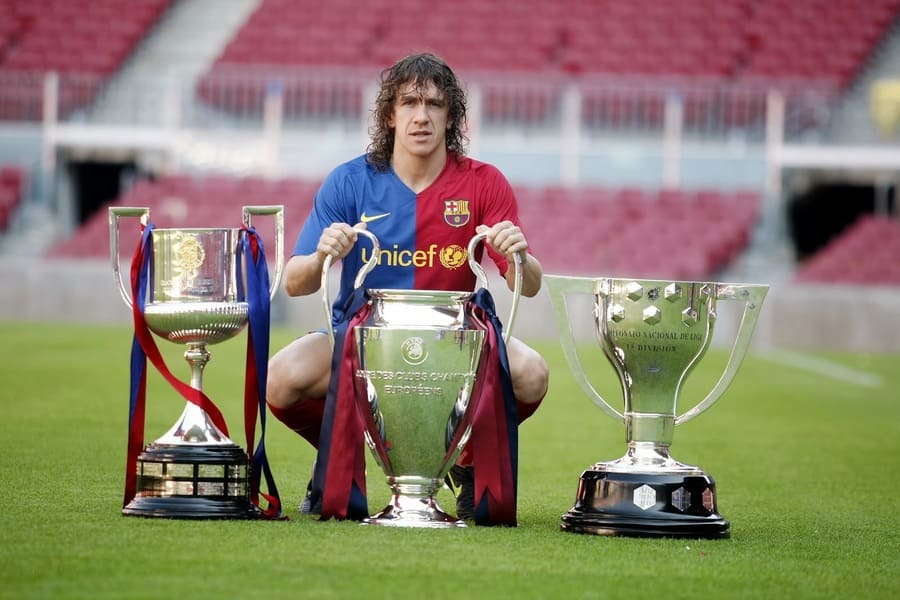
During his career, Puyol won numerous titles both at club and international level. With FC Barcelona, he achieved multiple league championships and Champions Leagues. His contribution to the Spanish team during his brilliant career was fundamental, being part of the team that won the Euro 2008 and the 2010 World Cup, sealing his legacy in the history of football.
Legends of Yesterday and Today
The history of Spanish football is marked by figures who have left an indelible mark on the sport. These legends have transcended generations and continue to be remembered for their talent and contributions to the game.
Ricardo Zamora: The Great Goalkeeper
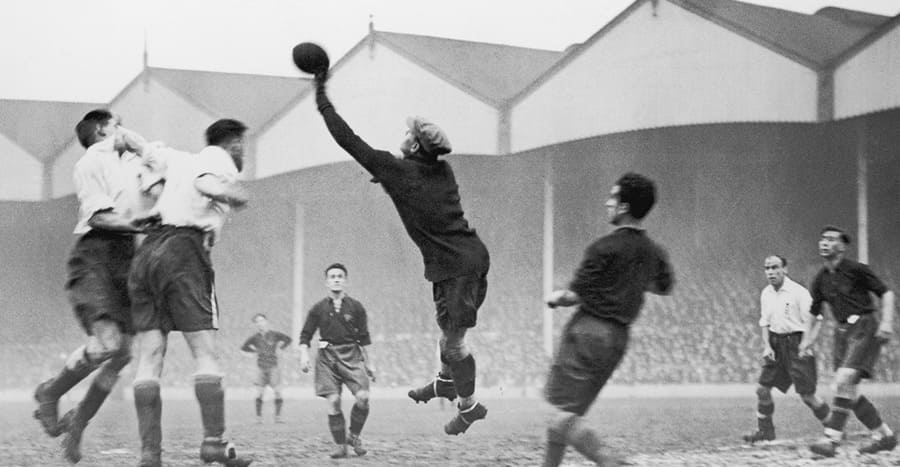
Ricardo Zamora is considered one of the best goalkeepers in the history of Spanish football. His impeccable style and exceptional skills defined an era in goalkeeping.
Foundation of your Legacy
Zamora made his professional football debut in 1919 with Espanyol, where he quickly stood out as a formidable goalkeeper. Throughout his career, he played for several teams, including Barcelona and Athletic Club. His legacy was cemented by the construction of a new defensive philosophy, in which the goalkeeper position acquired central importance.
Contributions to Spanish Football
Beyond his club career, Zamora was a fundamental pillar for the Spanish national team, participating in the 1934 and 1938 World Cups. His technique and mastery inspired future goalkeepers, making him an emblematic figure in the evolution of football in Spain.
Telmo Zarra: Top Scorer of his Era
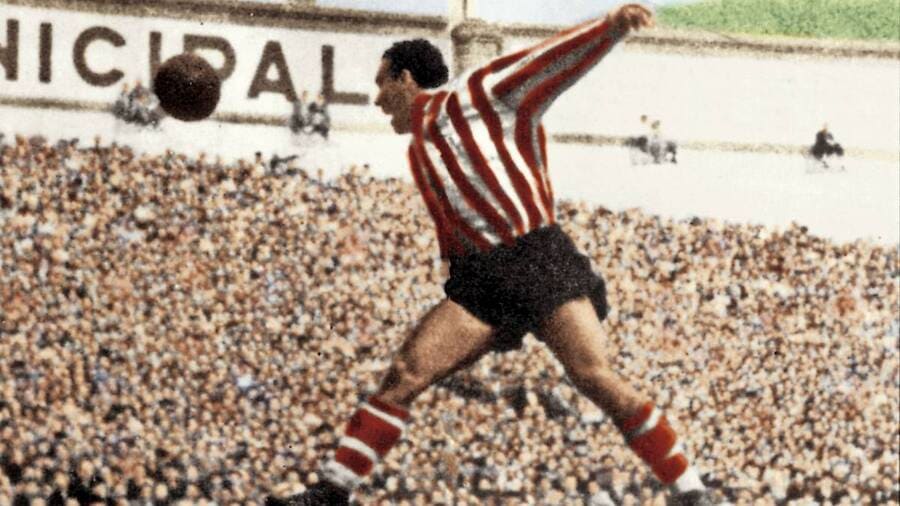
Telmo Zarra left an indelible mark in the history of Spanish football as one of the greatest forwards. His scoring ability made him a phenomenon in the League.
Goals in the Spanish League
Zarra played most of his career at Athletic Club de Bilbao, where he was the top scorer in LaLiga on several occasions. With an impressive total of 251 goals in league competitions, his record remained unbeaten for over 60 years, until it was surpassed by Raúl González.
Memorable Records
His ability to score goals at crucial moments, especially in finals, helped Athletic Club win several titles during his time. Zarra is remembered as a true icon of the sport, not only for his numbers, but also for his passion and dedication on the field.
Luis Suárez Miramontes: The Lusitano Ballon d’Or
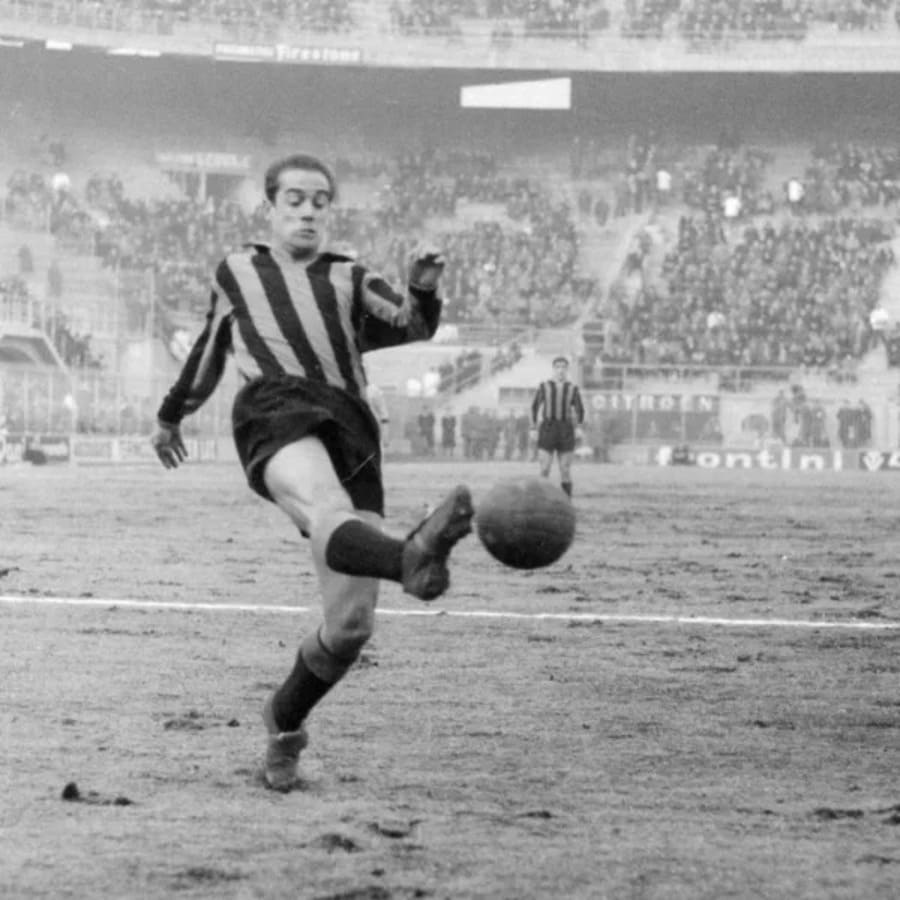
Luis Suárez Miramontes stands out as one of the most illustrious Spanish footballers, not only for his exploits on the field, but also for being the first Spaniard to receive the Ballon d’Or in 1960.
Career in European Teams
Suárez began his career at Deportivo de La Coruña, but it was at FC Barcelona where he would reach levels of excellence. Later, he joined Inter Milan, where he became a role model, leading the team to glory in Serie A and the European Cup.
Titles Including European Cups
During his career, Suárez contributed significantly to the successes of his clubs and the Spanish national team. His vision of the game and his ability with the ball allowed him to dominate on the pitch, being an essential part of a team that won multiple important titles during his time in Italy.
Francisco Gento: Six European Cups
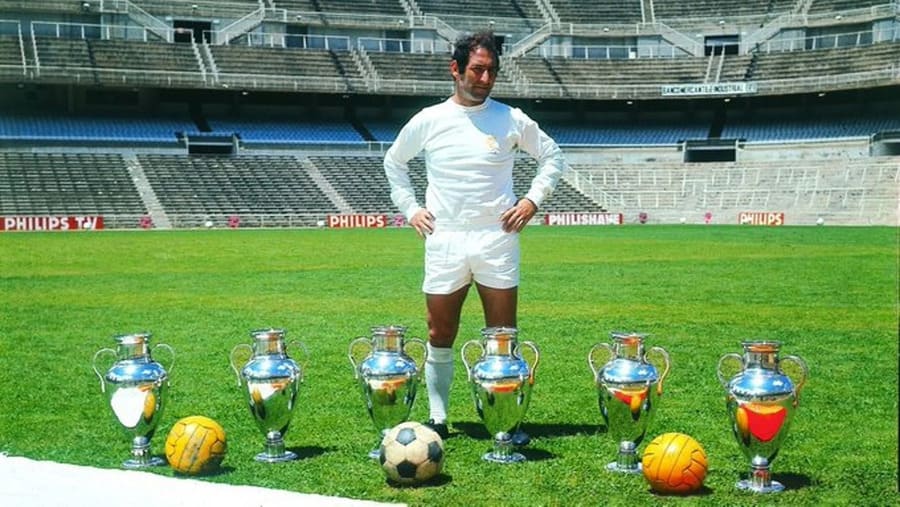
Francisco Gento is celebrated as one of the fastest and most talented wingers in the history of Spanish football. His career is characterized by an impressive number of titles and a game that has remained etched in the collective memory.
Successes with Real Madrid
Gento played most of his career for Real Madrid, where he became the first player to win six European Cups . His speed and ability to outrun defenders were critical to the team’s success in the 1950s and early 1960s.
Unbeatable Brands
His legacy is not only limited to titles; Gento was also an innovator in his position, influencing the team’s style of play and leaving a mark that lasts over time. His figure has become synonymous with greatness in the white club and in Spanish football in general.
Spanish Footballers in the World
The influence of Spanish football transcends borders, with talents that have left a significant mark on international teams and global competitions. Several Spanish footballers have shone in foreign leagues, establishing themselves as essential figures in their clubs and in the national team.
David Silva: The Wizard of Manchester City
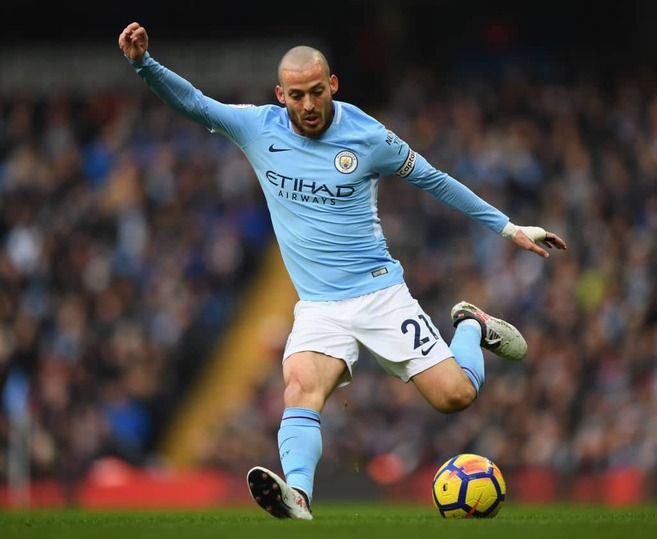
Milestones with the English Club
David Silva, nicknamed “The Magician”, has been one of the main architects of Manchester City‘s success in the last decade. Since his arrival in 2010, he has been instrumental in winning multiple Premier League titles, as well as winning the FA Cup and EFL Cup. His vision, passing ability and ability to create opportunities have revolutionized the team’s attack, earning the respect of fans and rivals alike.
Contributions to the Spanish National Team
Silva has also been a fundamental player for the Spanish team. He was part of the team that won the Euro Cup in 2008 and 2012 and the 2010 World Cup, where his masterful style and his assists have been essential in key moments. His legacy in the national team is marked by his technique and creativity, standing out as one of the best midfielders of his generation.
Xabi Alonso: Elegance in the Pass
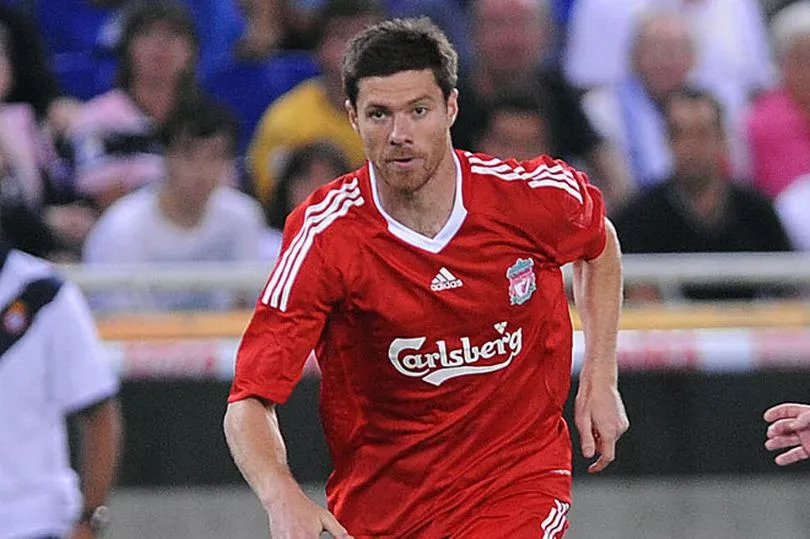
Conquests in different Clubs
Xabi Alonso has been a reference in several European leagues, standing out in clubs such as Liverpool, Real Madrid and Bayern Munich. With Liverpool, he won the Champions League in 2005, being instrumental in the historic comeback against AC Milan. Later, at Real Madrid, he won the Champions League and several league titles, while with Bayern he continued his winning ways with titles in the Bundesliga and the DFB-Pokal .
Highlights in the National Team
In the Spanish team, Xabi Alonso was an integral part of the team during its golden era. His role in Euro 2008, the 2010 World Cup and Euro 2012 was crucial, being a midfielder who dominated both in possession and distribution of the ball. His goal in the Euro 2012 final reaffirmed his legendary status and his impact on Spanish football.
Fernando Torres: From Atlético Idol to World Reference
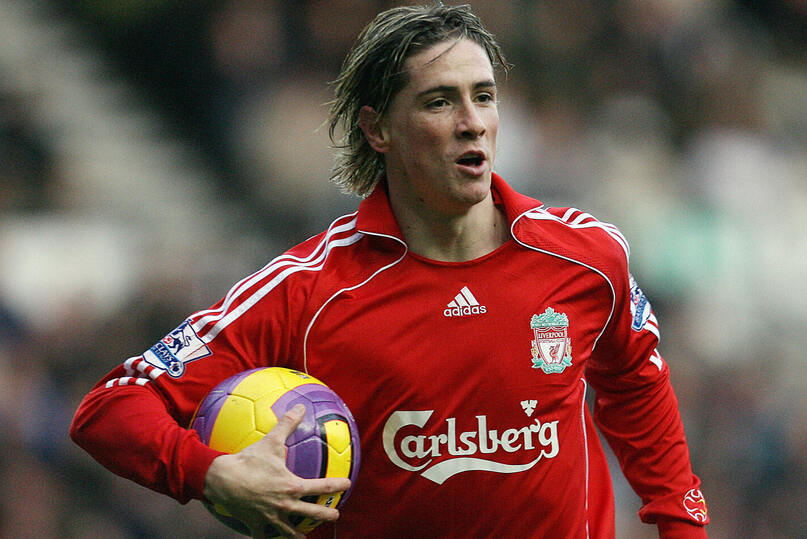
Achievements with Liverpool and Atlético de Madrid
Fernando Torres, known as “El Niño”, has had an impressive career both at his training club, Atlético de Madrid, and at Liverpool. With Liverpool, he became the Premier League‘s top scorer for several seasons and left an indelible mark by winning the Champions League in 2005. His return to Atlético was equally iconic, helping restore the club to greatness with his leadership and goals. decisive.
Medals and Titles in the Spanish National Team
Torres has been a key figure in the Spanish team, being part of the team that achieved glory in the 2010 World Cup and in the Euro Cups of 2008 and 2012. His goal in the Euro 2008 final against Germany is one of the most memorable moments. memorable in the history of Spanish football. His speed, scoring ability and charisma have established him as one of the most outstanding forwards of his time.
The Best of All Time in Spain
The legacy of Spanish footballers is a fundamental aspect in the history of sport. Over the decades, exceptional talents have been developed that have helped elevate national football on the international stage.
Young Promises and Future Stars
The present and future of Spanish football are in the hands of a new generation of players. This phenomenon is reflected in the large number of young talents emerging in the lower categories, as well as in the first division.
Training of New Talents
Academies and training centers in Spain have played a decisive role in creating promising figures. Clubs invest significantly in their youth teams to develop the potential of young people. Thus, not only technical skill is sought, but also the tactical and training education that this sport requires.
Training methods have evolved, incorporating performance analysis and attention to sports psychology. This has allowed young footballers to better adapt to the demands of professional football. This ensures that new talents are not only physically prepared, but also mentally prepared to face competition at high levels.
International projection
The projection of Spanish footballers in the international arena is increasingly notable. The young people who are trained in Spain are being watched by clubs from all over Europe and the world, which indicates the quality they possess. More and more players are turning to foreign leagues, where they can shine and show themselves in high-level competitions.
This phenomenon not only benefits the footballers themselves, but also enriches Spanish football, creating an exchange of experiences that often translates into a better game in their country of origin. The recognition of these talents, some of whom have already been called up to the national team, is a clear sign of the potential that is to come.
Impact and Legacy in Spanish Football
Spanish football has left a deep mark on a cultural, emotional and innovative level. The influence of great footballers and teams has transformed not only sport, but also national identity.
Cultural and Emotional
Football in Spain transcends sports. It has become a cultural phenomenon that unites various generations thanks to the shared passion for the game.
Uniting Generations of Fans
From dirt fields to modern stadiums, football has been a common thread between generations. Parents and children share moments of joy, disappointment and triumphs, creating bonds that strengthen over time.
- The stories of legendary players are told from generation to generation.
- The idolatry of figures such as Alfredo Di Stéfano, Xavi Hernández or Raúl González has crossed borders, inspiring many to pursue their dreams in sport.
- The successes of the Spanish team have provided a sense of unity among fans, turning each call-up into a collective celebration.
Inspiration and Passion
The passion that football awakens in Spain is not limited to the 90 minutes of play. This passion has also inspired artists, filmmakers and writers.
- Soccer has been the protagonist in numerous literary and cinematographic works, reflecting the importance of this sport in the daily lives of Spaniards.
- The anthems and songs that are sung in the stadiums are a sample of the fervor that each match provokes, becoming a true social phenomenon.
Innovations in the Game
Spanish football has been a pioneer in various tactical and strategic innovations that have influenced the development of the sport globally. Coaches and players have contributed to the evolution of the game, setting trends that have been adopted internationally.
Tactical Evolution
The implementation of distinctive playing styles has characterized Spanish clubs. Tactics like “tiki-taka” have revolutionized the way we understand football.
- This style, based on ball possession and team play, has been fundamental to the successes of the Spanish team and FC Barcelona in the last decade.
- Tactical formations have evolved over time, leading teams to adapt to a more dynamic and faster game.
Global Influence of Spanish Style
The successes in international competitions have allowed Spanish football to serve as a model to be followed by many federations and clubs around the world.
- Players trained in La Liga have exported their knowledge and style to other leagues, even impacting American and Asian football.
- Soccer academies globally are implementing the teachings and methodologies developed in Spain, seeking to replicate the success of Spanish soccer.





